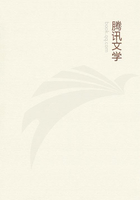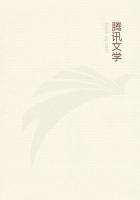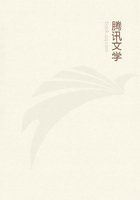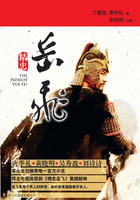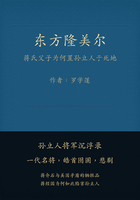Washington had more on his mind than the creation of an army and the siege of Boston.He had also to decide the strategy of the war.On the long American sea front Boston alone remained in British hands.New York, Philadelphia, Charleston and other ports farther south were all, for the time, on the side of the Revolution.Boston was not a good naval base for the British, since it commanded no great waterway leading inland.The sprawling colonies, from the rock-bound coast of New England to the swamps and forests of Georgia, were strong in their incoherent vastness.There were a thousand miles of seacoast.
Only rarely were considerable settlements to be found more than a hundred miles distant from salt water.An army marching to the interior would have increasing difficulties from transport and supplies.Wherever water routes could be used the naval power of the British gave them an advantage.One such route was the Hudson, less a river than a navigable arm of the sea, leading to the heart of the colony of New York, its upper waters almost touching Lake George and Lake Champlain, which in turn led to the St.Lawrence in Canada and thence to the sea.Canada was held by the British; and it was clear that, if they should take the city of New York, they might command the whole line from the mouth of the Hudson to the St.Lawrence, and so cut off New England from the other colonies and overcome a divided enemy.To foil this policy Washington planned to hold New York and to capture Canada.
With Canada in line the union of the colonies would be indeed continental, and, if the British were driven from Boston, they would have no secure foothold in North America.
The danger from Canada had always been a source of anxiety to the English colonies.The French had made Canada a base for attempts to drive the English from North America.During many decades war had raged along the Canadian frontier.With the cession of Canada to Britain in 1763 this danger had vanished.The old habit endured, however, of fear of Canada.When, in 1774, the British Parliament passed the bill for the government of Canada known as the Quebec Act, there was violent clamor.The measure was assumed to be a calculated threat against colonial liberty.The Quebec Act continued in Canada the French civil law and the ancient privileges of the Roman Catholic Church.It guaranteed order in the wild western region north of the Ohio, taken recently from France, by placing it under the authority long exercised there of the Governor of Quebec.Only a vivid imagination would conceive that to allow to the French in Canada their old loved customs and laws involved designs against the freedom under English law in the other colonies, or that to let the Canadians retain in respect to religion what they had always possessed meant a sinister plot against the Protestantism of the English colonies.
Yet Alexander Hamilton, perhaps the greatest mind in the American Revolution, had frantic suspicions.French laws in Canada involved, he said, the extension of French despotism in the English colonies.The privileges continued to the Roman Catholic Church in Canada would be followed in due course by the Inquisition, the burning of heretics at the stake in Boston and New York, and the bringing from Europe of Roman Catholic settlers who would prove tools for the destruction of religious liberty.
Military rule at Quebec meant, sooner or later, despotism everywhere in America.We may smile now at the youthful Hamilton's picture of "dark designs" and "deceitful wiles" on the part of that fierce Protestant George III to establish Roman Catholic despotism, but the colonies regarded the danger as serious.The quick remedy would be simply to take Canada, as Washington now planned.
To this end something had been done before Washington assumed the command.The British Fort Ticonderoga, on the neck of land separating Lake Champlain from Lake George, commanded the route from New York to Canada.The fight at Lexington in April had been quickly followed by aggressive action against this British stronghold.No news of Lexington had reached the fort when early in May Colonel Ethan Allen, with Benedict Arnold serving as a volunteer in his force of eighty-three men, arrived in friendly guise.The fort was held by only forty-eight British; with the menace from France at last ended they felt secure; discipline was slack, for there was nothing to do.The incompetent commander testified that he lent Allen twenty men for some rough work on the lake.By evening Allen had them all drunk and then it was easy, without firing a shot, to capture the fort with a rush.The door to Canada was open.Great stores of ammunition and a hundred and twenty guns, which in due course were used against the British at Boston, fell into American hands.
About Canada Washington was ill-informed.He thought of the Canadians as if they were Virginians or New Yorkers.They had been recently conquered by Britain; their new king was a tyrant;they would desire liberty and would welcome an American army.So reasoned Washington, but without knowledge.The Canadians were a conquered people, but they had found the British king no tyrant and they had experienced the paradox of being freer under the conqueror than they had been under their own sovereign.The last days of French rule in Canada were disgraced by corruption and tyranny almost unbelievable.The Canadian peasant had been cruelly robbed and he had conceived for his French rulers a dislike which appears still in his attitude towards the motherland of France.For his new British master he had assuredly no love, but he was no longer dragged off to war and his property was not plundered.He was free, too, to speak his mind.During the first twenty years after the British conquest of Canada the Canadian French matured indeed an assertive liberty not even dreamed of during the previous century and a half of French rule.

